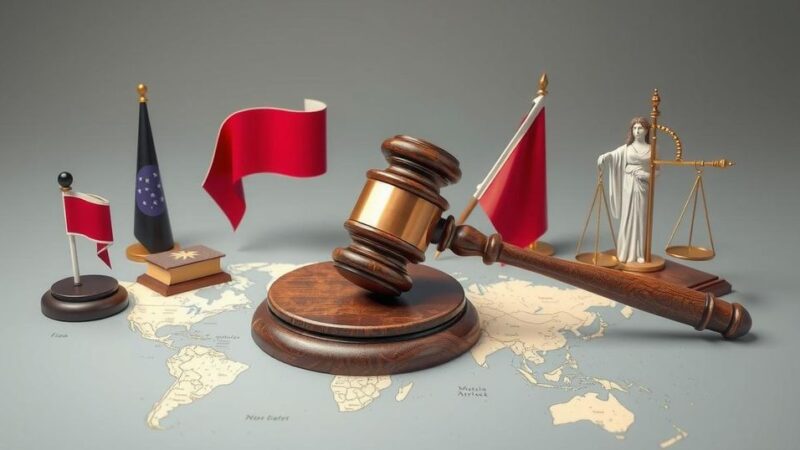The Democratic Republic of Congo plans to initiate legal action against technology companies, including Apple, for their involvement with conflict minerals found in its eastern provinces. Tantalum, essential for electronics manufacturing, has fueled violence in the region due to militia control. The DRC seeks to ensure accountability in global supply chains as it confronts alleged support from Rwanda for these militia groups. Apple is under scrutiny for its sourcing practices, despite measures taken to sever ties with suppliers involved in conflict minerals.
The Democratic Republic of Congo (DRC) is taking significant steps to address the issue of conflict minerals, aiming to hold major technology companies, including Apple, legally accountable for their sourcing practices. This initiative primarily targets the eastern provinces of the DRC, which are recognized as the largest global sources of tantalum, a precious metal crucial for the production of various electronic devices, including smartphones and the iPhone. Due to the immense value of tantalum, the DRC has become a battleground for over 100 militia groups vying for control of its mines, resulting in heightened violence and instability in the region. The rebel group M23 recently gained control of Rubaya, the largest tantalum mine, further complicating the situation. The DRC has accused neighboring Rwanda of supporting the M23 in their efforts, although such claims are vehemently denied by the Rwandan government. Besides tantalum, other minerals like gold, tin, and tungsten are categorized as “conflict minerals” given their role in financing armed conflicts, thus perpetuating violence in the area. In light of these challenges, the United Nations has classified minerals from Rubaya as “ineligible for trade” owing to their association with armed conflict. Despite such sanctions, these minerals continue to infiltrate global supply chains, prompting the DRC to seek accountability from multinational corporations, particularly those in the technology sector. The DRC’s Foreign Minister, Therese Kayikwamba Wagner, has disclosed that the government is contemplating legal actions to combat the illicit trade of these minerals. Although specific legal strategies remain undeveloped, Minister Wagner affirmed that the DRC will investigate all possible avenues to ensure companies are held accountable for their role in exacerbating the region’s instability. Previously, in April, the DRC notified Apple of potential implications regarding its sourcing methods related to conflict minerals. By May, legal representatives from the DRC asserted that Apple had not sufficiently demonstrated that its supply chain was free from associations with conflict-driven minerals. In response, Apple has taken measures to disengage from suppliers complicit in conflict mineral sourcing, having ceased relations with 18 suppliers in 2020 and an additional 12 in 2022. Nevertheless, these attempts have not completely satisfied critics. As pressures from legal and public realms escalate, Apple’s corporate responsibility practices are increasingly scrutinized. Demonstrations advocating for a boycott of Apple products took place during the iPhone 16 launch, igniting discussions on the broader implications of ethical sourcing in the technology industry, as well as the moral obligations of corporations to ensure their supply chains are devoid of exploitative practices linked to conflict.
The Democratic Republic of Congo (DRC) has long been embroiled in conflict due to its rich mineral resources, particularly tantalum, which is vital for electronic production. The eastern provinces are home to numerous militia groups that exploit these resources, fueling violence and instability. The emergence of laws and regulations aimed at curbing the trade in conflict minerals has led to increasing scrutiny and pressure on international corporations, especially those in the technology sector, to ensure responsible sourcing and distance themselves from regions implicated in human rights abuses and armed conflict.
The Democratic Republic of Congo’s decisive action against major technology firms, particularly Apple, marks a critical move towards addressing the illegal trade of conflict minerals. The DRC is striving to enforce accountability, reflecting a growing global awareness of the ethical implications surrounding resource sourcing and the social responsibilities of corporations. As this situation develops, it underscores the necessity for transparent supply chains that prioritize human rights and environmental sustainability, while also highlighting the ongoing struggles of conflict-affected regions.
Original Source: www.firstpost.com







